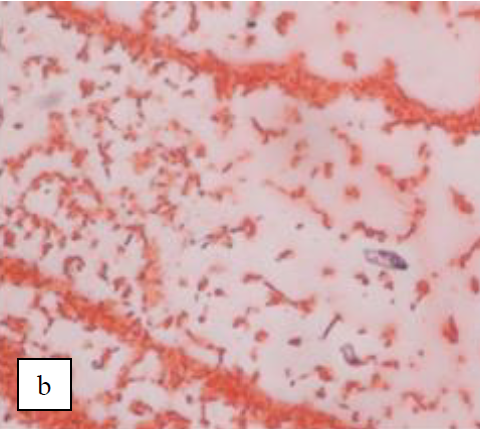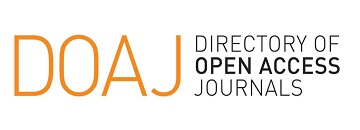Isolation and Potency of Symbiotic Nitrogen Fixation Bacteria from Nodules of Falcataria moluccana (Miq.) Barneby & J.W.Grimes for Supporting Nickle Postmining Area Reclamation

Downloads
Downloads
Abubakar, F. (2015). Isolation and characterisation of indigenous rhizobia and response to inoculation by promiscuous soybean in the Nigerian savanna. Ahmadu Bello University.
Arsyad, R. H. (2007). Penggunaan Rhizobium dan Mikroba Pelarut Fosfat (MPF) Untuk Memperbaiki Pertumbuhan Bibit Akasia (Acacia mangium dan Acacia crassicarpa). Bogor: Institut Pertanian Bogor.Skripsi. Tidak dipublikasikan
Dariah, A., Abdurachman, A., & Subardja, D. (2010). Reklamasi lahan eks-penambangan untuk perluasan areal pertanian. Jurnal Sumberdaya Lahan, 4(1), 1–12.
Datta, A., Singh, R. K., &Tabassum, S. (2015).. Isolation, Characterization and Growth of RhizobiumStrains under Optimum Conditions for Effective Biofertilizer Production. Int. J. Pharm. Sci. Rev. Res.,32(34), 199–208.
Deshwal, V., & Chaubey, A. (2014). Isolation and characterization of Rhizobium leguminosarum from root nodule of Pisum sativum L. Journal of Academia and Industrial Research., 2(8), 464–467.
Gyorgy, E., Mara, G., Mathe, I., Laslo, E., Marialigeti, K., Albert, B., Oancea, F., & Lanyi, S. (2010). Characterization and diversity of the nitrogen fixing microbiota from a specific grassland habitat in the Ciuc Mountains. Romanian Biotechnological Letters, 15(4), 5474–5481.
Hakim, E. H. (2016). Penataan lahan kawasan pesisir pasca penambangan pasir besi Pantai Selatan Kabupaten Tasikmalaya. Jurnal Geografi, 4(24), 15–23.
Hemraj, V., Diksha, S., & Avneet, G. (2013). A review on commonly used biochemical test for bacteria. Innovare Journal of Life Science, 1(1), 1–7.
Howieson, J. G., & Dilworth, M. J. (2016). Working with rhizobia(J. Howiensen & M. J. Dilworth (eds.); Issue January). Australian Center for International Agriculture Research (ACIAR).
Leomo, S., Mudi, L. A., & Alam, S. (2013). Aplikasi rizobakteri pada cover crop dalam mempengaruhi sifat kimia tanah bekas tambang nikel. Jurnal Agroteknos. 3(1), 26–33.
Mayer, C., Moritz, R., Kirschner, C., Borchard, W., Maibaum, R., Wingender, J., &Flemming, H. C. (1999). The role of intermolecular interactions: studies on model systems for bacterial biofilms. Int.J.Biol.Macromol., 26(1), 3–16.
Novriani. (2011). Peranan Rhizobium dalam MeningkatkanKetersediaan Nitrogen bagi Tanaman Kedelai. AgronobiS,3(5), 35–42.
Pawar, V. A., Pawar, P. R., Bhosale, A. M., &Chavan, S. V. (2014). Effect of Rhizobium on Seed Germinationand Growth of Plants. Journal of Academia and Industrial Research, 3(2), 84 -88.
Permatasari, M. (2011). Uji Inokulum Rhizobia dan Pengaruhnya Terhadap Pertumbuhan Acacia mangium Pada Tanah Masam Bekas Tambang. Bogor: Institut Pertanian Bogor.
Prayudyaningsih, R., Mangopang, A. D., Broto, B. W., Sari, R., Kurniawan, E., Hajar, & Ansari, F. (2015). Eksplorasi Mikroba Tanah Simbiotik, Pemilihan Jenis TumbuhanLokal dan Keanekaragaman Hayati Lahan Bekas Tambang Nikel.Laporan Hasil Penelitian. Balai Litbang LHK Makassar. Tidak dipublikasikan.
Purwaningsih, S., Dan, B., & Kerja, C. (2002). Isolation of population and characterization of Rhizobium bacteria in soil from Gunung Halimun National Park , West Java.Berita Biologi6(April), 167–171.
Rangel, W. M., Thijs, S., Janssen, J., Oliveira Longatti, S. M., Bonaldi, D. S., Ribeiro, P. R. A., Jambon, I., Eevers,N., Weyens, N., Vangronsveld, J., & Moreira, F. M. S. (2016). Native rhizobia from Zn mining soil promote the growth of Leucaena leucocephala on contaminated soil. International Journal of Phytoremediation, 19(2), 142–156.
Sari, R., & Prayudyaningsih, R. (2016). Populasi danJenis Bakteri Penambat Nitrogen Simbiotik di Lahan Bekas Tambang Nikel. In M. Litaay, Syahribulan, Fahruddin, R. Umar, & Sardiani (Eds.), Seminar Nasional Biologi: Peranan Biologi Dalam Peningkatan Konservasi Keragaman Hayati(pp. 475–483). Fakultas MIPA Universitas Hasauddin.
Sari, Ramdana, & Prayudyaningsih, R. (2018). Perkembangan bintil akar pada semai sengon laut(Paraserianthes falcataria(L) Nielsen).Info Teknis EBONI, 15(2), 105–119.
Shahzad, F., Shafee, M., Abbas, F., Babar, S., Tariq, M. M., & Ahmad, Z. (2012). Isolation and biochemicalcharacterization of rhizobium meliloti from root nodules of Alfalfa (Medico sativa). Journal of Animal and Plant Sciences, 22(2), 522–524.
Shetta, N D, A.-S. and M. A.-A. (2011). Identificationand characterization of Rhizobium associated with woody legume trees grown under Saudi Arabia Condition. Am-Euras J. Agric. & Environ. Sci., 10(3), 410–418.
Sheu, S. Y., Chen, Z. H., Young, C. C., & Chen, W. M. (2016). Rhizobium ipomoeae sp. nov., isolatedfrom a water convolvulus field. International Journal of Systematic and Evolutionary Microbiology, 66(4), 1633–1640.
Somasegaran, P., & Hoben, H. J. (1994). Handbook for Rhizobia: Methods in Legume-Rhizobium Technology(P. Somasegaran & H. J. Hoben (eds.)). Springer-Verlag.
Suciana, & Surdin. (2016). Persepsi masyarakat petani pengeloaan pertambangan nikel terhadap hasil produksi sawah di Desa Watumbohoti. Jurnal Penelitian Pendidikan Geografi, 1(1), 53–68.
Sudrajat, D., Mulyana, N., & Ardhari, A. (2013). Seleksi mikrobarizosfer indigen untuk bahan bioaktif pada inokulan berbasis kompos iradiasi. Prosiding Seminar Nasional Matematika, Sains Dan Teknologi, 97–110.
Syauqie, A., Hatta, M., Priaymadi, B. J., & Kissinger. (2019). Pengaruhpemberian kompos dan posisi lereng terhadap pertumbuhan sengon (Paraserianthes falcataria) di lahan revegetasi bekas tambang batu bara. EnviroScienteae, 15(2), 146–153.
Usman, E. (2011). Prospekpengembangan sumber daya nikel Laterit di Kawasan Timur Indonesia. M&E, 9(2), 17–25.
Utami, H. (2009). Kajian Sifat Fisik, Sifat Kimia dan Sifat Biologi Tanah Paska Tambang Galian C pada Tiga Penutupan Lahan. Bogor: Institut Pertanian Bogor (IPB).
Widawati, S., S. dan S. (2015). Isolasi dan uji efektivitas Plant Growth Promoting Rhizobacteria di lahan marginal pada pertumbuhantanaman kedelai (Glycine max L. Merr.) var. Wilis. Prosiding Seminar Nasional Masyarakat Biodiversitas Indonesia, 1, 59–65.
Zahran, H. ., Abdel-Fattah, M., Yasser, M. ., Mahmoud, A. M., & Bedmar, E. . (2012). Diversity and environmental stress responses of Rhizobial Bacteria from Egyptian Grain legumes. Australian Journal of Basic and Applied Sciences, 6(10), 571–583.








